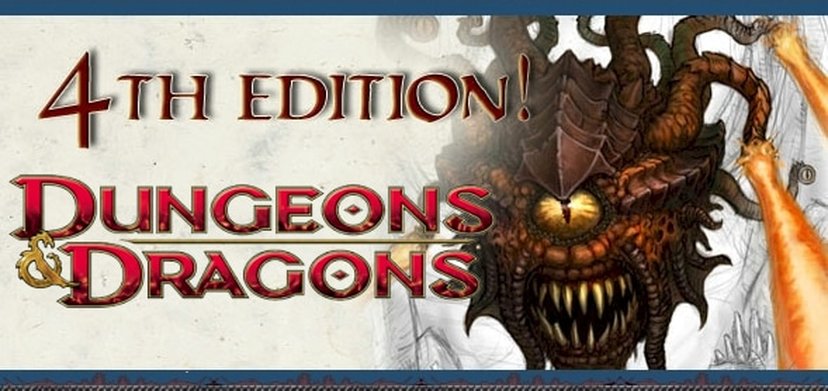 I know, I know; D&D 4e is arguably one of the least popular tabletop RPGs ever spawned. For me, it’ll always have a special place in my heart as it was my first table-top RPG. As I branched out, I learned to laugh at some of the silliness within those tomes with everyone else. Yet, I still find myself wanting to pick it up every now and again. Whether you hated the insane amounts of conditional modifiers or the lack of diversity within any given character class, there are definitely some fine things we have learned from 4e. 1) Art Somebody is bound to complain that this point is a cop-out, but let’s take a second to analyze how important it is to this game’s identity. Especially when put it next to the art from 3.5 or even 5e, the art style of 4e is pretty much a cartoon. The ultra-realism of 3.5 had taken a backseat for some reason, and though I love the 3.5 art, there was something immensely appealing about 4th editions style. One every page are vibrant colors, smooth lines, and dramatic scenes. Everyone and everything is doing something, not just standing around like we see Tordek doing. However, I’m not saying that the 4e art doesn’t have detail. It’s just different, in its own special way. What is truly amazing, though, is how it mirrors the gameplay experience. The art reminds me of something you’d see for a video game and, let’s be honest, that’s basically what 4e is: a video game translated to a tabletop. Weapons are proportioned to an unreasonable degree in some instances, the stunts being depicted are high-flying and somewhat silly. I still love thumbing through those books, simply to gaze upon the glory of the creative minds behind the art. 2) Solo Monsters Many game systems struggle when you have one big, bad guy fighting an adventuring party. The action economy doesn’t line up, sometimes dice luck botches it, or maybe your players just have abilities that debilitate the creature. This edition had rock solid rules to make your baddies last and put up a fight that’s remembered. Sure, it might take you four nights of play to kill the paragon tier boss, but at least you know the math all lines up. Solo monsters were only bolstered by the rigid combat ruleset of the game, even though it was ultimately its biggest failure. 3) Skill Challenges The first delve into making traveling interesting! Skill challenges were a mechanic used to overcome abstract or complicated obstacles that your adventurers could come across. It was tremendously effective at training your group to think outside the box and maybe even use those skills that are based off a stat with a negative modifier. It wasn’t perfect, but it did serve as a springboard for many similar mechanics that exist in RPGs today. Hell, sometimes I even use the skill challenge as it originally existed! Sometimes players just can’t solve a puzzle, and using skills to abstractly narrate how the characters figure it out is damn useful. 4) Bridging The Gap To tell it true and fair, 4e was a little ahead of its time. Nowadays, we have this big shift from video gaming to tabletop gaming. What game bridges that gap better? 4e is rigid enough to give a video gamer a level of comfort while still teaching them how to role play. Counting squares, managing skills, strategic positioning, attack cards/powers, you name it, they’re all things that video gamers can grab a hold of and process. It’s the purpose the game has served for me, and it should continue to do so. Sean is the Heavy Metal GM. He’s an aspiring freelance writer and blogger that loves the hobby more than life itself. Always up for a good discussion, his blog covers general gaming advice as well as specialized advice/homebrew rules for 13th Age RPG. You can find his website at www.heavymetalgm.com, join the conversation. 4/7/2017 08:35:51 pm
I've said on numerous occasions that if 4th edition was simply re-branded as "Diablo 3: The RPG" it'd be lauded as a fantastic game!
Reply
Leave a Reply. |
All blog materials created and developed by the staff here at High Level Games Archives
April 2023
Categories
All
|
Proudly powered by Weebly



 RSS Feed
RSS Feed